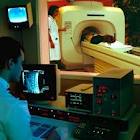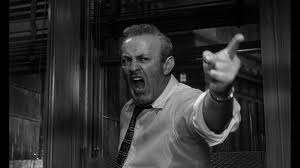- Two Thanksgiving Thoughts for the ACAPosted 10 years ago
- Shop til you Drop at the Healthcare Marketplace Part 2: Frustration!Posted 10 years ago
- An Early Casualty in the Affordable Care FightPosted 10 years ago
- Some Good News for a ChangePosted 10 years ago
Will Tort Reform Help Solve the Health Care Crisis? Part 2
 Although the money spent on malpractice law suits turns out to be a fraction of the cost of health care in the US (2% or $35 billion dollars including malpractice premiums and all court awards), it should not be ignored. Because of the quirkiness of getting sued, most doctors carry malpractice liability insurance and it has become quite expensive for the individual practitioner. It tends to be higher for the specialties where getting sued is most likely, Cardiac Surgery and Neurosurgery. Not surprisingly these are also among the most highly compensated specialties so the higher fees help pay for the insurance.
Although the money spent on malpractice law suits turns out to be a fraction of the cost of health care in the US (2% or $35 billion dollars including malpractice premiums and all court awards), it should not be ignored. Because of the quirkiness of getting sued, most doctors carry malpractice liability insurance and it has become quite expensive for the individual practitioner. It tends to be higher for the specialties where getting sued is most likely, Cardiac Surgery and Neurosurgery. Not surprisingly these are also among the most highly compensated specialties so the higher fees help pay for the insurance.
 And then there is the issue of Defensive Medicine, unnecessary tests or therapy ordered for legal ‘defense’ reasons. Many doctors will tell you they do tests to document what they know to be true already. That means they may hear a pneumonia, but get a chest XRay for the purpose of having supporting evidence later. When a person rolls into an emergency room with chest discomfort, they may get oxygen, blood studies and an EKG even oxygenation tests though another diagnosis is fairly certain. How much does this cost? Nobody can tell since it depends on what is in the diagnosing and treating doctor’s brain. estimates run to maybe $66 billion or 3% of all medical costs in the US.
And then there is the issue of Defensive Medicine, unnecessary tests or therapy ordered for legal ‘defense’ reasons. Many doctors will tell you they do tests to document what they know to be true already. That means they may hear a pneumonia, but get a chest XRay for the purpose of having supporting evidence later. When a person rolls into an emergency room with chest discomfort, they may get oxygen, blood studies and an EKG even oxygenation tests though another diagnosis is fairly certain. How much does this cost? Nobody can tell since it depends on what is in the diagnosing and treating doctor’s brain. estimates run to maybe $66 billion or 3% of all medical costs in the US.
 The mental stress of preparing for a law suit, even a frivolous one, can be significant. Defending yourself against charges of incompetence is something no one, MD or not, likes. There are legal fees, discovery of the facts in case, copying of voluminous records, expert witnesses and analysts, depositions to see what each side will claim, and legal research of past cases. The meter is always running. Any given case can drag on and on. And, as we can see, there is no assurance justice will prevail. Justice delayed is also justice denied.
The mental stress of preparing for a law suit, even a frivolous one, can be significant. Defending yourself against charges of incompetence is something no one, MD or not, likes. There are legal fees, discovery of the facts in case, copying of voluminous records, expert witnesses and analysts, depositions to see what each side will claim, and legal research of past cases. The meter is always running. Any given case can drag on and on. And, as we can see, there is no assurance justice will prevail. Justice delayed is also justice denied.
Dr. Ezekiel Emmanuel again, one of the clearest minds on this topic, has conceded malpractice tort reform is not a major factor in the over-all cost reduction struggle. Dr. Zeke on our malpractice system: “”it’s really a classic case of a really crummy system…. It’s kind of like crap shoot.” And when 98% of mistakes go undetected and over 50% of suits are in cases where no malpractice has occurred, this is an important area begging for reform.
 I favor the establishment of pre-trial reviews by a balanced expert group before the court room theatrics are allowed to begin. Such a system could be jointly under the judiciary and the state medical board. It should include professional people and knowledgeable non-MDs to be fair. They should review material before a case is allowed to proceed and make a recommendation. This might speed a settlement. Of course the victim always has recourse to a trial but the findings are a matter of record. Further I think this panel should also have the ability to recommend a suspension of a license to practice if the errors are serious enough to warrant that. Remedial work could also be recommended in some cases. Fraud might be discovered on either side.
I favor the establishment of pre-trial reviews by a balanced expert group before the court room theatrics are allowed to begin. Such a system could be jointly under the judiciary and the state medical board. It should include professional people and knowledgeable non-MDs to be fair. They should review material before a case is allowed to proceed and make a recommendation. This might speed a settlement. Of course the victim always has recourse to a trial but the findings are a matter of record. Further I think this panel should also have the ability to recommend a suspension of a license to practice if the errors are serious enough to warrant that. Remedial work could also be recommended in some cases. Fraud might be discovered on either side.
 Though it is not the silver bullet to solve sky-rocketing medical costs, the current medical system is an area where reform is badly needed now. At the very least it is a giant waste of time and resources. And it has not encouraged better medicine.
Though it is not the silver bullet to solve sky-rocketing medical costs, the current medical system is an area where reform is badly needed now. At the very least it is a giant waste of time and resources. And it has not encouraged better medicine.
 I doubt there will be one magic pill to solve the health care costs crisis of 2012. Wise men will want to focus on big-ticket solutions, but given our problems, we should be looking for improvements and reform on all fronts. We need superior minds to sit down, shut up, roll up their sleeves and get to work on this chronic festering sore on the gluteus maximus of American Medicine.
I doubt there will be one magic pill to solve the health care costs crisis of 2012. Wise men will want to focus on big-ticket solutions, but given our problems, we should be looking for improvements and reform on all fronts. We need superior minds to sit down, shut up, roll up their sleeves and get to work on this chronic festering sore on the gluteus maximus of American Medicine.
Tom Godfrey









Litigation in malpractice suits is driven by 2 main motives: emotion and money. There is nothing balanced, constructive or fair about it. Of the emotionally motivated suits, there are 2 main types: anger and a feeling that someone must be responsible for the misfortunes that have fallen upon their loved one. The later seems to be a very American emotion. Malpractice lawyers ride this highly charged emotional state.
This brings us to the 2nd main motive: Money. I was at a medical-legal conference about 6 years ago and lecture was given by an MD,JD who very gave an eloquently example. He recommended to his OB clients to NOT purchase malpractice insurance and purge themselves of any personal assets. This in essence would provide not incentive for lawyers to pursue litigation aimed at the physicians. This had successfully saved the physicians significant amount of money and reduced law suits as well.
How do we buffer the emotional aspect and the monetary incentive of law suits? Justice should always be pursued, but for it’s singular sake and without secondary motives. People must understand that malpractice is not defined as a bad outcome, but a gross negligence by a physician. An expert panel, I think, would fit that bill. I say this with great caution. The charged emotions are still present and could complicate the work of the ideally objective panel’s work. For Tort reform to occur and carry out this change, we must also change the culture of sue baby sue.
As for the practice of defensive medicine… I am afraid that one will be very difficult. As much as physicians take pride in the honor and altruism of medicine, we provide a service. We must work to educate and garner trust in our patients… but, that takes time. With current cuts… that’s going to be ever more challenging. This is not just Tort reform, it is culture reform.
Dr. Deramerian says it all very well. This is an emotional issue that is not being well served by the current system. However given that national reformers now regard this as a low-priority item given the number of over-all dollars it represents in the greater scheme of things, we will need a new approach from concerned members of the public and the profession itself. I plan to return to this subject again. Thanks
Tom